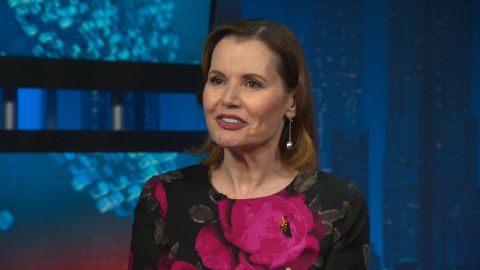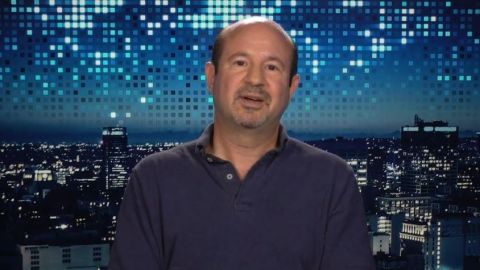Read Transcript EXPAND
CHRISTIANE AMANPOUR: Tell us what good and what’s right about those sort of farming methods right now.
MICHAEL MANN, PROFESSOR OF ATMOSPHERIC SCIENCE, PENN STATE UNIVERSITY: Sure. So, the bad news, of course, is that our farming methods, agriculture, land use, deforestation, are contributing substantially to the climate crisis, as this report lays bare. But at the same time, the good news is that there is ample room for mitigation. There are things we can do to lower those carbon emissions from the agricultural sector, from the, you know, livestock and food production. Among those, as we’ve heard, is more, you know, careful methods of planting and agriculture, no till agriculture, growing a potentially different cultivars, feeding livestock different food. Different food sources can actually lower carbon emission, methane emissions, for example, from cows and ruminates. So, there is a lot of room to decrease those carbon emissions, which collectively are a little less than 25 percent, that means that this isn’t the bulk of the problem. The bulk of the problem remains the burning of our fossil fuels for energy and transportation, but this is a significant piece of the pie. We need to focus on it and there is ample opportunity for reducing those carbon emissions in a very win-win sense, limiting deforestation, more productive agricultural methods that will feed more people can also help us sequester carbon so it doesn’t build up so quickly in the atmosphere.
AMANPOUR: So, then tell me, because you have contributed to other IPCC, you know, reports. Tell me what the significance is, in your view, of this latest report. We know that the first one which came out warned that we had until 2030 to get our act together as a world to meet that, you know, 1.52-degree critical temperature rise. What is this one telling us specifically?
MANN: Yes. So, these reports, this special report, for example, on land that occurs between the major IPCC reports, like the one that was published last year, are important because they focus on specific topics which are of vital importance. In this case, this report focuses on land. That’s where 7.5 billion and growing people live. It’s where we live. And climate change is already having adverse impacts on that land. It is, for example, leading to a loss of coastal sort of land because of sea level rise and more devastating tropical storms that are inundating our coastlines. Because of the warming of the planet, a large part of the tropics is starting to become unlivably hot.
About This Episode EXPAND
Michael Mann tells Christiane Amanpour why we need to rethink what we eat and how we produce it. Maleeha Lodhi joins the program to explain tensions between Pakistan and India. Geena Davis and Tom Donahue sit down with Hari Sreenivasan to discuss their new film “This Changes Everything,” which tackles the need for more female representation in media.
LEARN MORE


